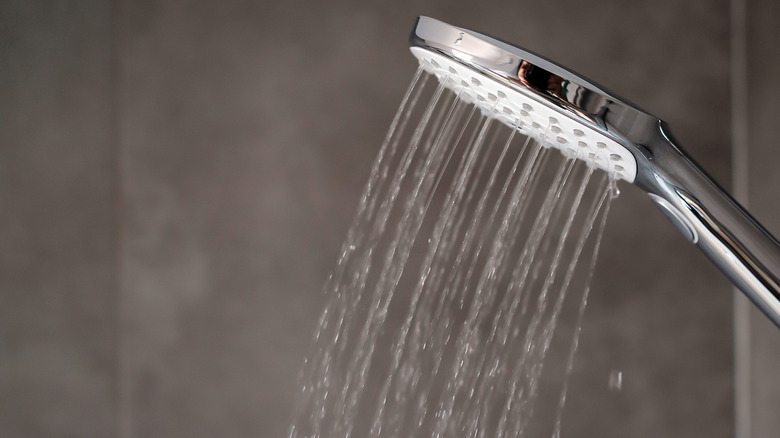How Your Shower Water Can Affect Your Body
We spend a lot of time picking out the best shampoo, conditioner, and soap for ourselves. But our shower water affects our bodies just as much, if not more, than what we use during our daily wash.
There are several ways your shower water can affect your body. The first is the temperature of your water. While many people prefer warm or hot showers, cold water offers many benefits (via Healthline). This includes waking you up if you're tired, increasing blood circulation, calming itchy skin, reducing soreness, and improving the look of hair and skin.
This isn't to say hot showers are bad. While they can be drying to the skin, hot showers can offer respiratory relief, improve blemishes, and relax the muscles. The best shower temperature for most people is lukewarm. This temperature is bearable, won't dry out your skin, and still offers many of the health benefits of a cold shower.
Hard water can cause similar issues as very hot water
The hardness or softness of water refers to the high concentration of minerals in it (via Healthline). Hard water usually has high levels of calcium and magnesium while soft water usually has high levels of sodium. While hard water is not known to cause serious health problems, it can leave your skin dry and irritated. It can also make it more difficult for your skin to fight against negative bacteria or infections. Frequently showering in soft water may increase blood pressure and can negatively impact people who already have high blood pressure.
Depending on what your water source is, shower water can sometimes contain contaminants and harmful pollutants (via President's Cancer Panel). Some of the contaminants can even lead to illnesses like cancer.
You can make sure you're showering in clean, healthy water by installing a filter on your shower head. A filter can remove harmful contaminants and balance out water that is hard or soft.


